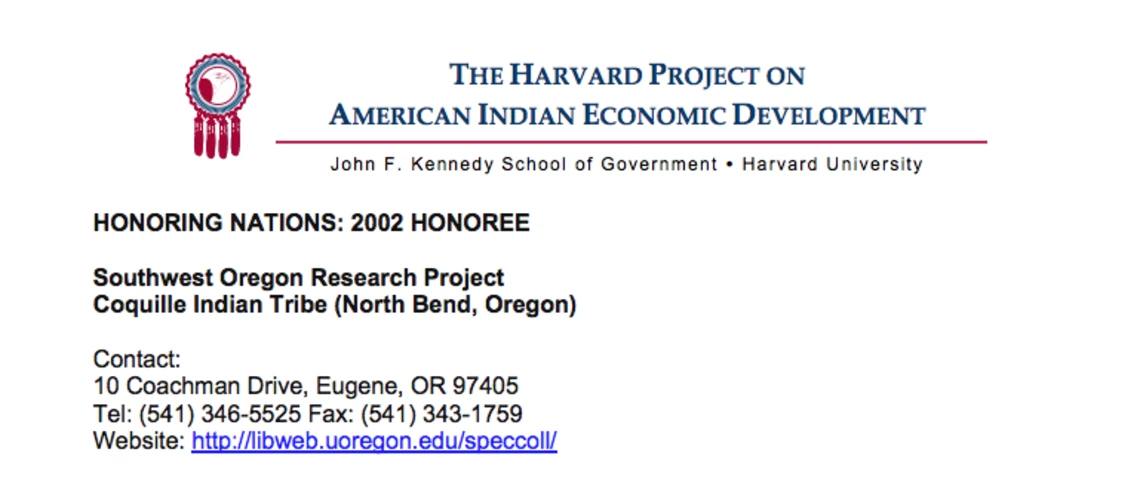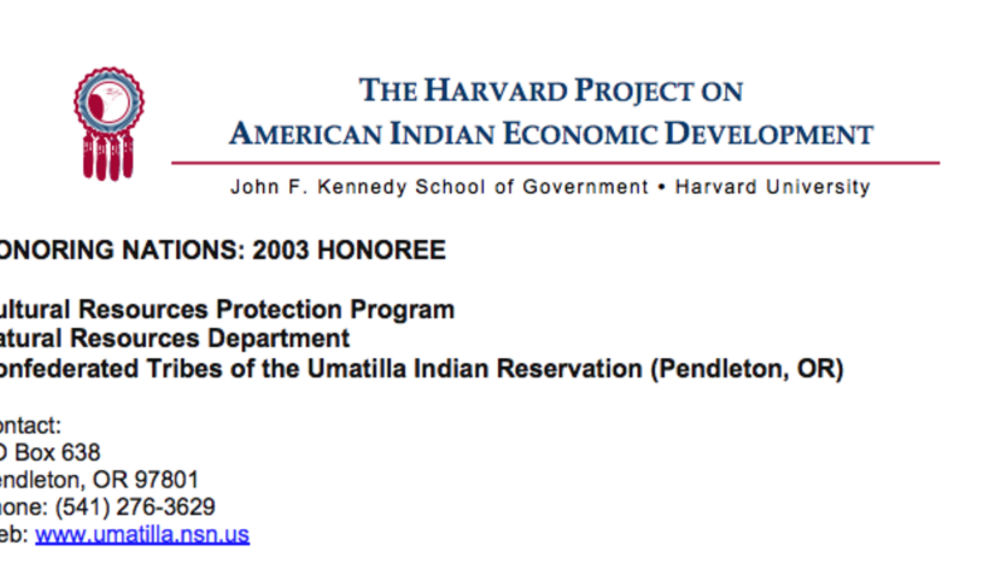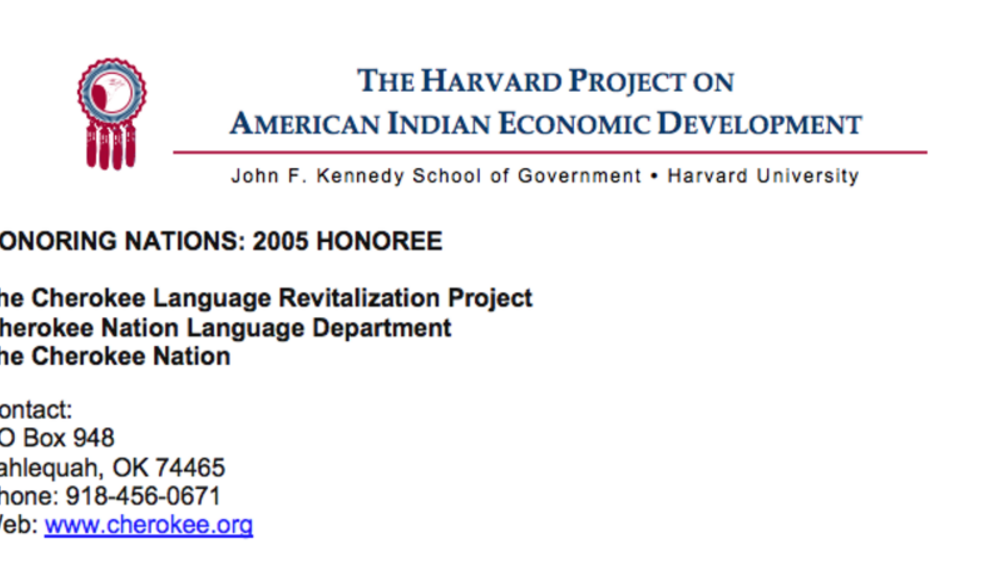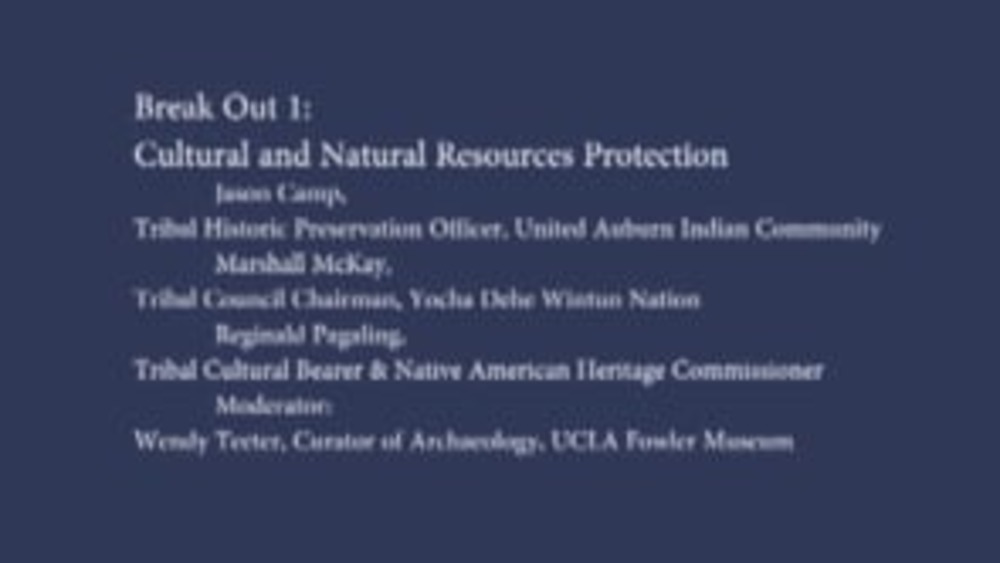Driven by the belief that possessing historical documents and archival collections is essential for cultural self-determination, the Coquille Indian Tribe partnered with the University of Oregon and the Smithsonian Institution to launch the Southwest Oregon Research Project (SWORP) in 1995. Through SWORP, over 110,000 pages of cultural, linguistic, and historical documents have been collected and placed in a central archive. In 1997 and again in 2001, SWORP held potlatches in which 44 tribes were given copies of the collection. Today, these documents help tribal scholars develop and present a culturally sensitive and historically accurate body of knowledge about northwest tribes.
Additional Information
"Southwest Oregon Research Project (SWORP)". Honoring Nations: 2002 Honoree. Harvard Project on American Indian Economic Development, John F. Kennedy School of Government, Harvard University. Cambridge, Massachusetts. 2003. Report.




